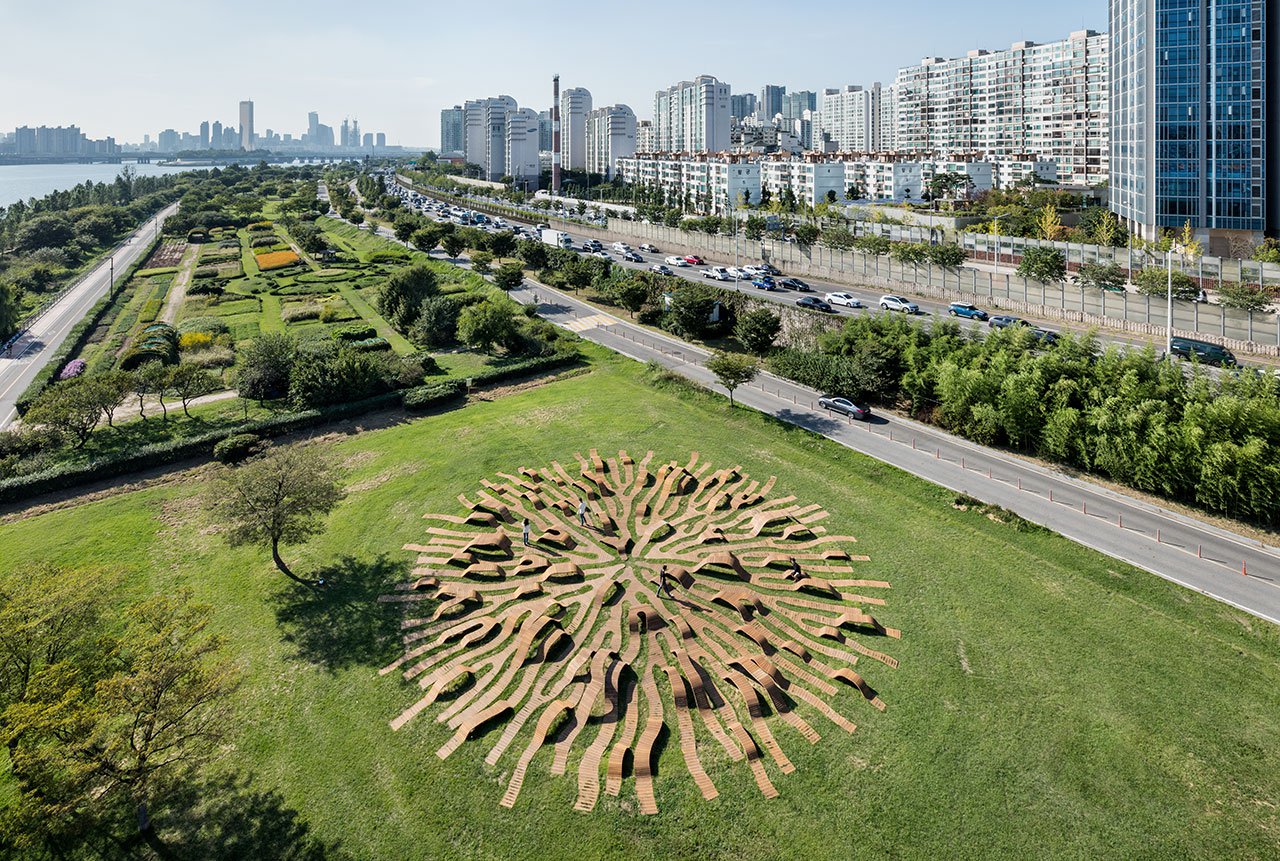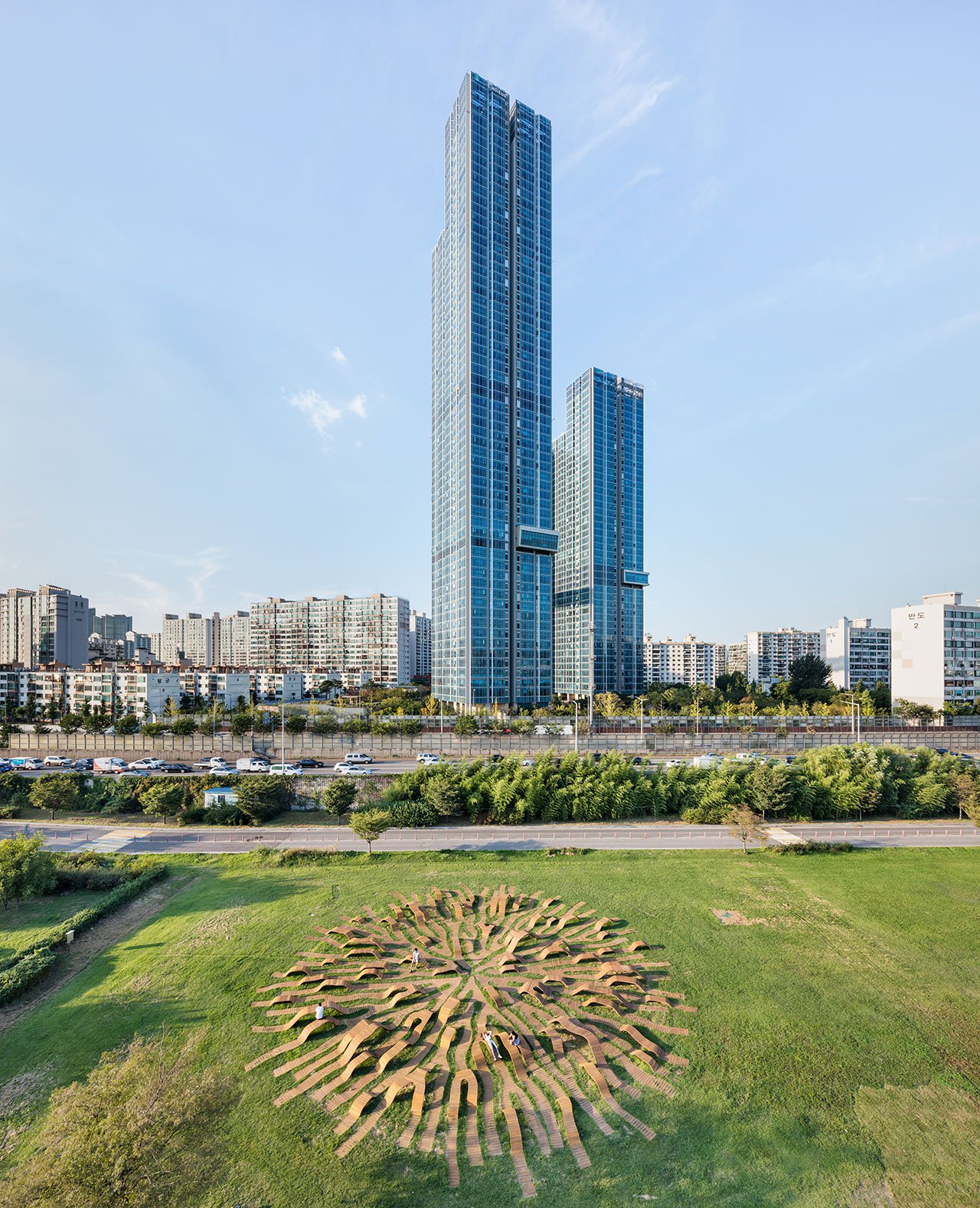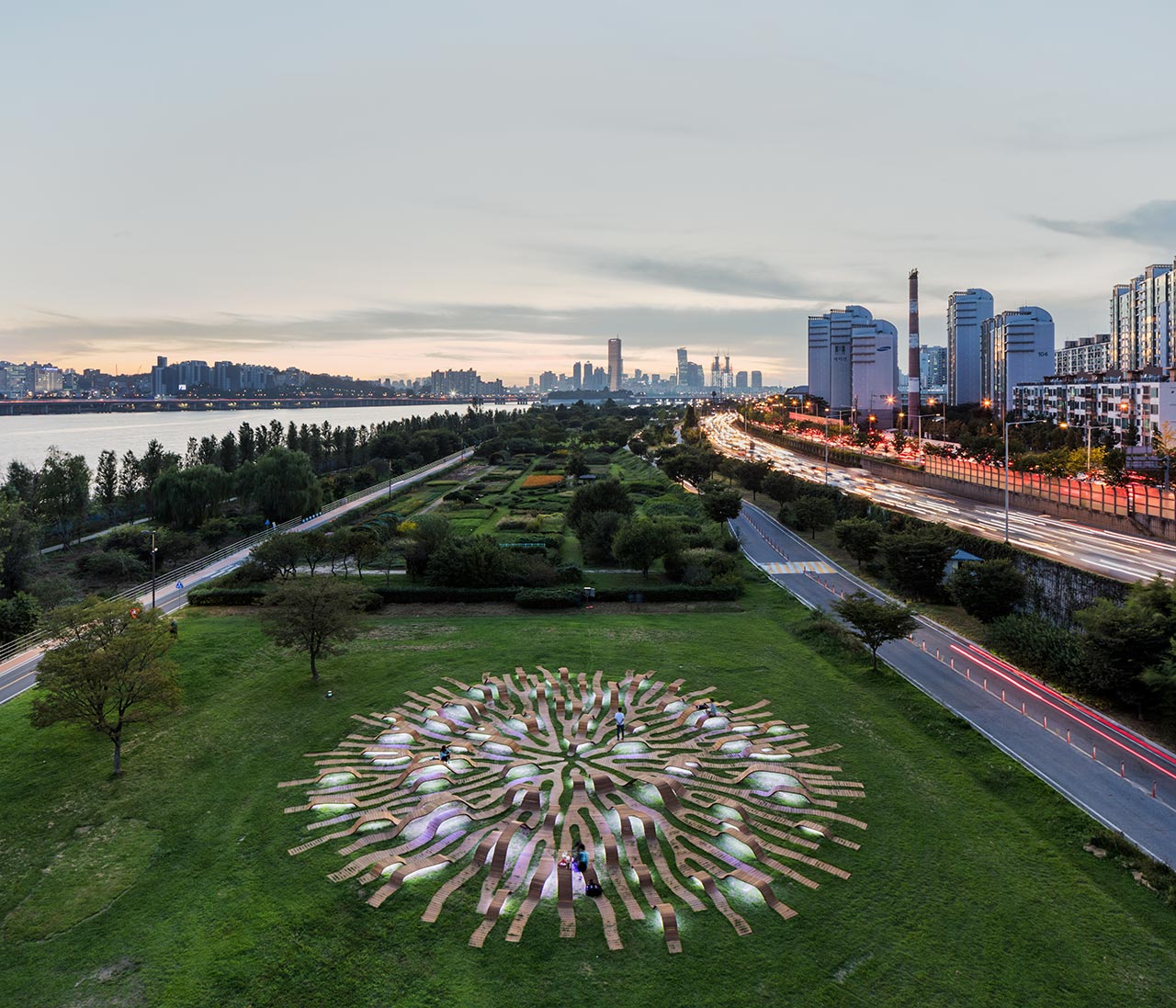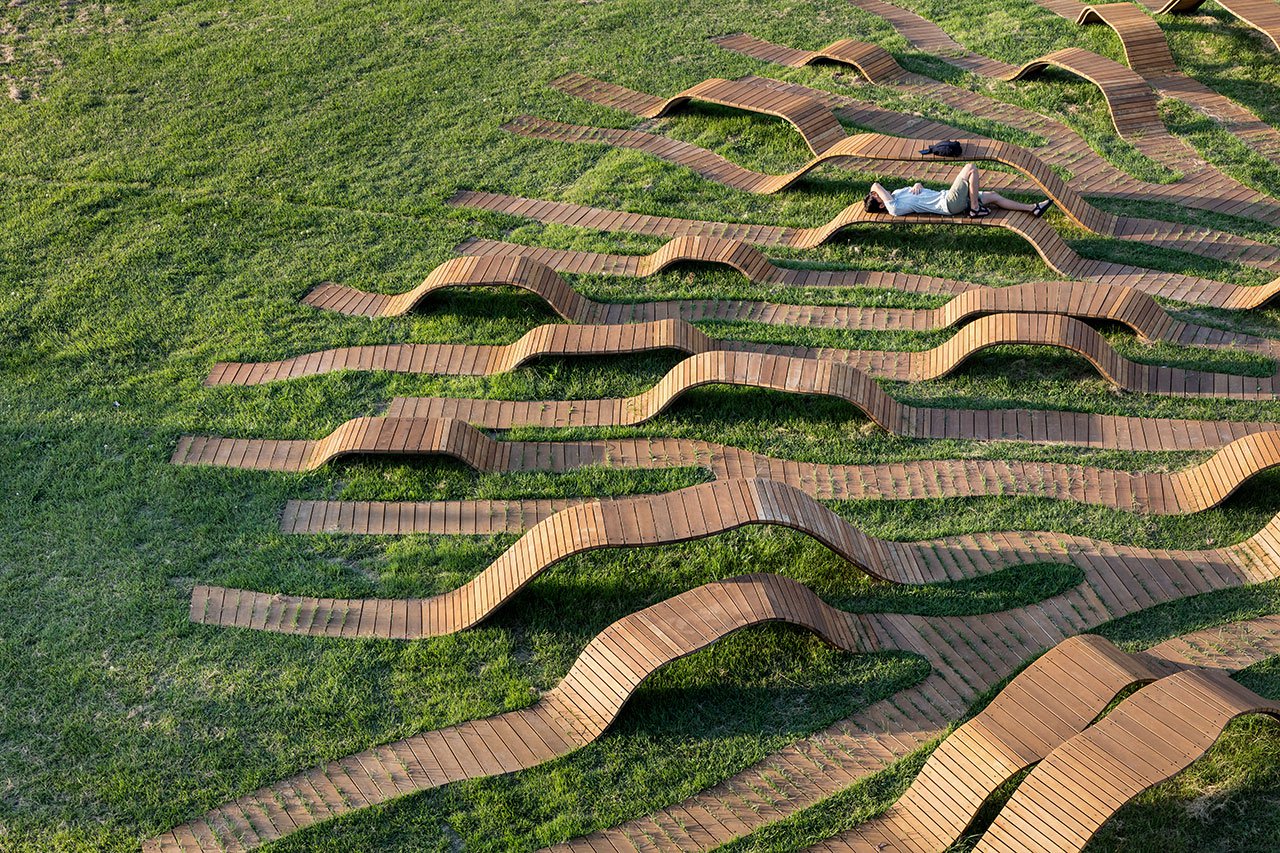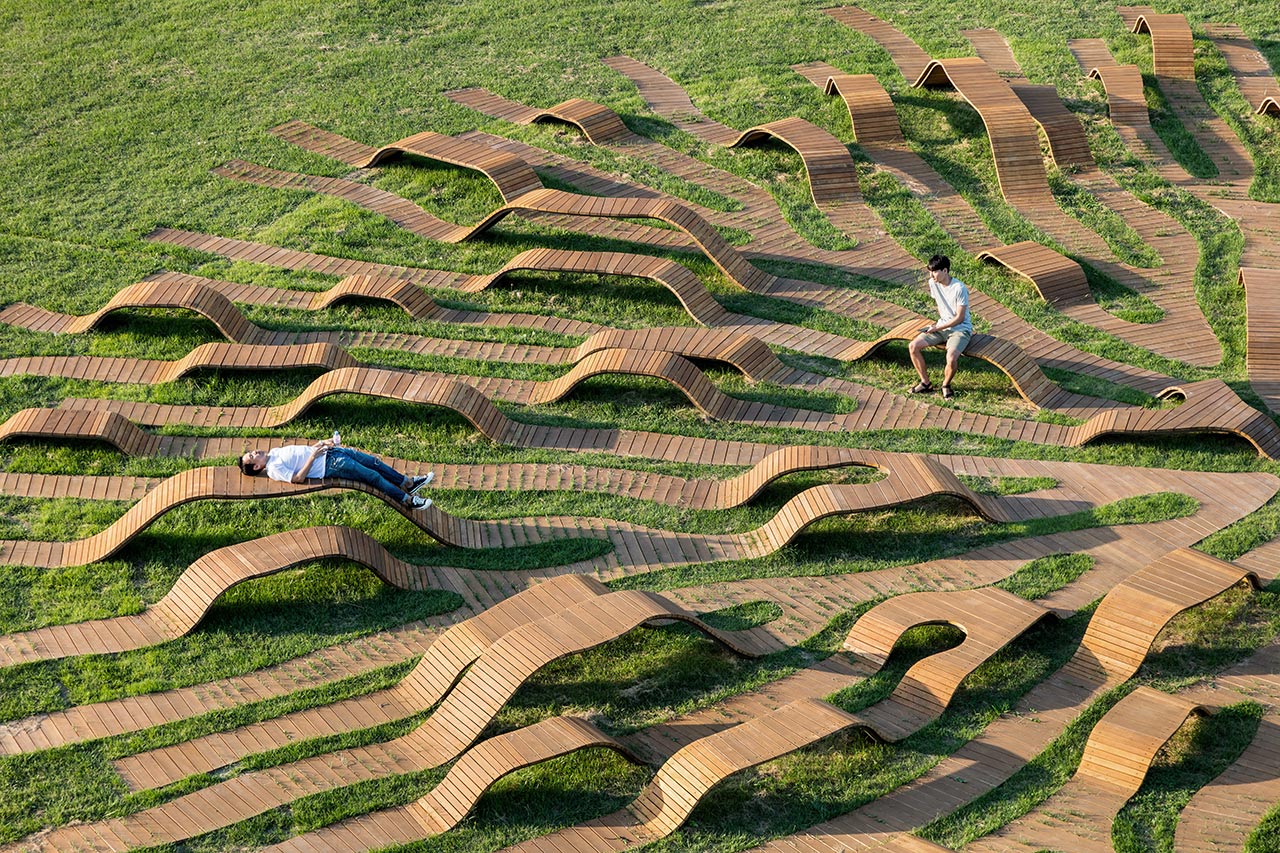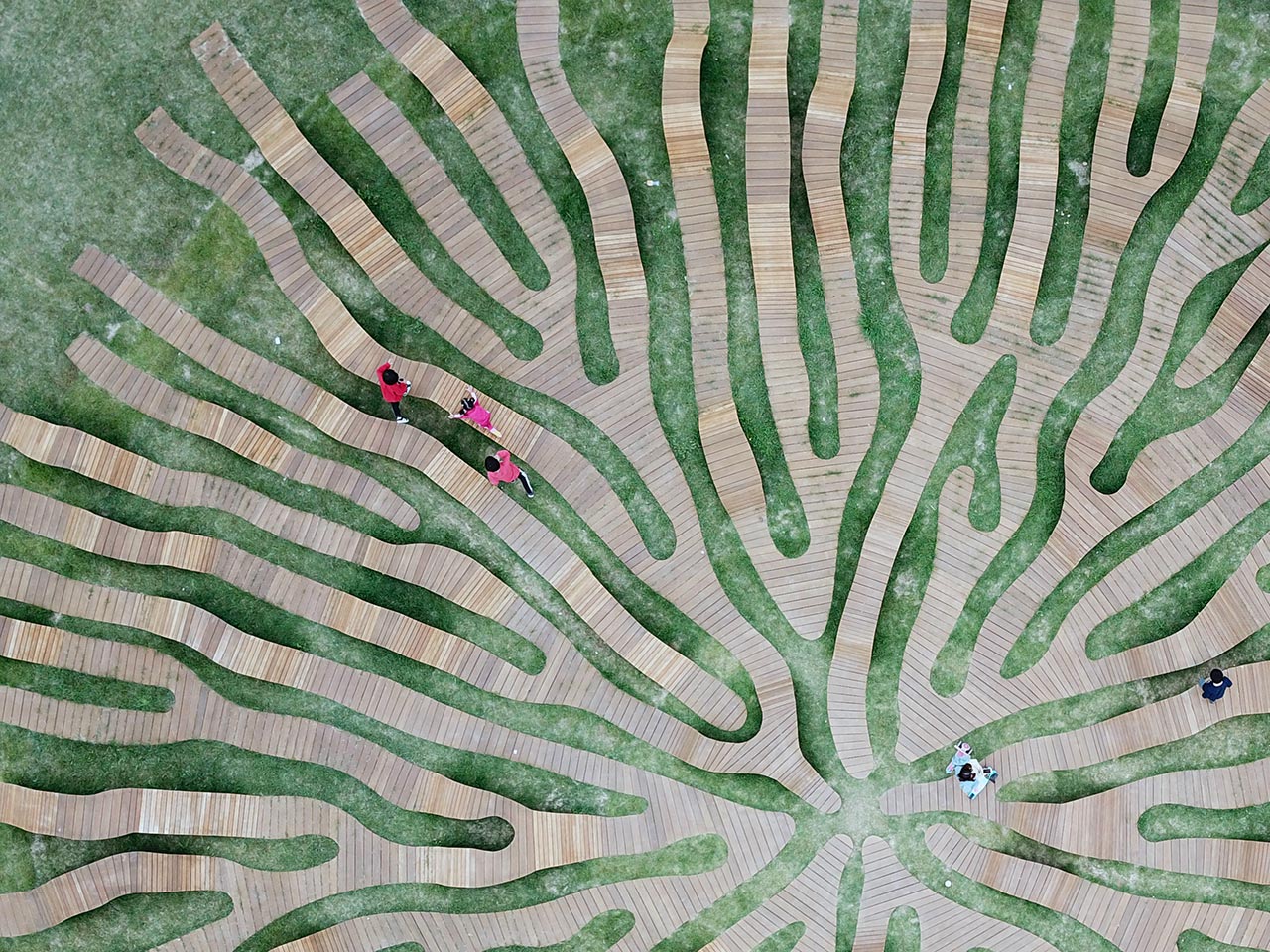Part public art sculpture, part public furniture, Root Bench in Hangang Art Park in Seoul, South Korea, not only defies categorization but it also blurs the boundaries between the man-made and the natural environment. Designed by local practice Yong Ju Lee Architecture, the installation appears as a network of tree roots that organically spread out over the park’s grassy terrain. Circular in shape, with a diameter of 30 metres, it consists of bifurcating, branch-like benches that gently rise and fall to create different heights for people to lean, sit, or lie down on, in a spectacular sculptural gesture that draws people to the park. Yong Ju Lee’s design, which is based on the firm’s winning entry in the Hangang Art Competition, was facilitated by a computer algorithm that generated the bench’s complex three-dimensional geometry. Based on a ‘reaction-diffusion’ mathematical model, which usually calculates the temporal and spatial rate of diffusion that causes physical substances to spread out over a surface, the algorithm designed the installation’s unique radial form that rhythmically dissipates into the ground. Supported by a metal frame with concrete footing supports, the structure features wooden decking that serves both aesthetic and practical purposes. Comfortable to sit or lie on, the timber benches also harmoniously blend into the natural setting as if they organically grew there. Featuring three different heights, the wave-like surfaces provide seating for both children and adults as well as tables where park-goers can enjoy an impromptu picnic. At night, concealed lighting imbues the Root Bench with a mystical ambience and allows the public to use it safely after the sun has gone down, further underlining that, far from alienating us from the natural environment, new technologies can bring us closer.
